|
I once heard Carol Matz say in an interview that she tries to avoid "ice cream songs." Ice cream songs are those pop songs that are popular for 5 minutes, but by the time you arrange them for piano students, they've lost their appeal. Today's featured arrangement is definitely not an ice cream song, and what's even better, it will appeal to students of all ages! If you teach adults, they'll remember Cyndi Lauper's original from the 80s. Your littles and elementary age kids will recognize it from Trolls. The message of this song is timeless, and it sounds beautiful on the piano. This arrangement is great for beginners who can reach a 7th, and even though it's pretty simple to learn, it sounds full and sophisticated. More intermediate students may have fun adding their own embellishments. You can see and purchase True Colors here. Let me know how you like it!
2 Comments
Are you ready for summer? I'm not, but I'm getting there! Last time, I shared with you some of the ways I like to make summer lessons more fun (and make a few extra dollars), and this week I want to talk a little bit more about one of those add-on options: Creative Projects. Every year I offer some kind of creativity/composing-based projects to my students, but this year I really wanted to make them special. Here is what I'm offering this year: 1. Art and Composing Students who choose this project will have the opportunity to create a work of art (painting, poem, short story, animated video, etc.) and then compose and publish a piece of music inspired by their artwork. 2. Composing with Technology This is a great option for any student, but it's particularly great for those students who are really musical, but perhaps not the most confident pianists. Students who choose this option will learn the ins and outs of using GarageBand to compose an original piece and learn some basics of music producing. 3. Creating a Piano Game This project was inspired by one of my students who made up a bunch of new rules to Pianoland and made it so much more fun! Students who participate in this project will creat their very own piano game to share with the other students in the studio. For each of these add-on projects I charge a reasonable fee and require students to take at least 5 lessons in the months of June and July. I'm even giving a bonus discount to anyone who pays for everything upfront. Freebie for Teachers: If you're feeling inspired to mix things up in your lessons with some fun add-ons, I'm giving away a Five Week Game Plan (pun totally intended) for you to help your students build a piano game of their very own!
If you love these ideas and want to try them out for yourself, take a look at my ebook: Creative Projects for Piano Student Volume 1, where I give you step by step lesson plans and worksheets for all three of these projects!
A few years ago, I took a webinar about summer camps and group teaching, and I got SO INSPIRED! (You can check it out here!)
Only one problem: I don't have a studio space. My house is itty bitty, and where I live, it's really expensive to rent a space. So I was faced with a dilemma: How do I capture the energy, fun, and, let's be honest, income boosting potential of summer camps in my mobile studio? While I have not abandoned the idea of having everyone meet me at the beach every day for a week, I also understand that a big part of why parents hire a teacher who comes to them is the convenience of not having to drive their children to another activity. Thus, I came up with a few alternatives: 1. Creative Projects This idea originated with my colleague Dawn and her Young Composers Program, which totally rocks. For a small added cost to cover expenses and extra work hours, over the course of the summer, students are coached through creating a polished composition which they notate in notation software and record. At the end of the summer, every participant gets a book of all of the compositions and a CD of everyone playing their pieces. It's a really fun project that students in her studio look forward to every year! A handful of my students have participated over the years, and they are always so proud of their end product. For the past couple of years, I've expanded upon this idea in my own studio to facilitate some other creative projects. Last year I had a student make a video about how the piano works. This year, I'm offering a "Build Your Own Piano Game" opportunity, inspired by one of my young students who made up a bunch of extra rules to one of my games and made it WAY MORE FUN! 2. Quick Starts/Crash Courses/Bootcamps With these, I put together a 6 week add-on curriculum to give students a jump start in areas like chord playing, pop music, improvising, and songwriting. They usually take up about half of our regular lesson time, with homework assignments, and a final project. I'll include some examples in future posts. 3. Music Clubs I am super excited about this new offering this year, and I'm getting my students pumped up about it too. Basically, these clubs are like virtual summer camps. Students will participate in special activities during their lessons. They'll have ongoing projects that they share with other participants including games and composing activities. This year I'm planning a Harry Potter Themed "Magical Music Club" because at least half of my studio is as obsessed with Harry Potter as I am. I'll be sharing a lot more details about this project in the weeks and months to come, so if you're intrigued, stay tuned! What do you do to mix things up and make a little extra money in the summer? Let me know in the comments. Have you ever thought about online or video lessons?
To be honest, until very recently, I hadn't. I like teaching in person. My piano space is limited. I don't have room in my budget right now for new tech. I don't need new students or want to extend my teaching hours. I didn't think my families would ever get on board with remote learning. All of this changed about a month ago when I started the Online Lesson Academy from the Upbeat Piano Teachers. I've taken many webinars from the Upbeats, and I'd always been so inspired by them. This past summer I took part in their Planning Academy, and it was a whole new experience. The live group coaching format of these Academies is unlike anything else out there right now for piano teachers! This Online Lesson Academy was so inspiring! Here's what you get:
What do you learn exactly? This academy is so jam-packed! You get everything you need to get started teaching online or via video. You'll learn all about the technology needed (and that you probably already have all of the tools you need to get started), different platforms you can use (and exactly how to use them), ideas about scheduling, writing policies, getting parents on board, how the lessons will actually flow, what kind of activities work well in an online format, how to physically set things up at the piano, etc. They really leave no stone unturned. So what were my favorite parts?
A caveat: do not register for this class if you are in a busy season because it is time consuming. Between the live coaching, the group discussion, and the assignments, you really do need a little time every day (and sometimes a little more than a little) to get the most out of the Academy. That being said, you do get lifetime access to everything, so you can go back at any time to watch or re-watch videos and complete assignments. The group is archived a couple of weeks after the Academy ends, but you are invited to join the private Upbeat Mastermind Group, where you can always continue the discussion or ask questions as things come up. My over-all impression: This class is WORTH IT! Even if you're just tossing the idea around in the dreamy part of your brain right now, the practical tools and ideas you get from the Online Lesson Academy can open up some brand new possibilities for your studio and your business. If you're interested in the Online Lesson Academy, you can get more information here. Registration is currently closed, but they do plan to offer more sessions in the future, so definitely check it out. Have you ever thought about teaching online or video lessons? If so, what's holding you back? Yesterday was International Women's Day, "a global day celebrating the social, economic, cultural, and political achievements of women" (link).
Piano playing developed as a generally female activity, and since it's earliest emergence as a profession, the majority of private piano teachers have been women. (If you're interested in reading a fascinating series on the social history of piano teaching, click here.) Composing, however, especially in the professional sense, was almost always relegated to men. We see very few female composers in our standard teaching repertoire, and it's very rare to hear music by a female composer on your local classical radio station. This doesn't mean that women haven't been creating great music for centuries. We just have to know where to look! Listen: For your listening pleasure, check out this Spotify playlist put together by NAXOS. Anthologies: These two collections are great for a broad overview of piano music by female composers. They both include a little biographical information about each of the composers. Women Composers in History At the Piano with Women Composers By Composer: Amy Beach:
Cecile Chaminade:
Clara Schumann: both of these collections are great for advanced players For Your Littles: Here are three great little books from Kiddy Keys: I hope these resources can get you started exploring the works of these great women with your piano students. Know of any other great resources out there on female composers? Let me know in the comments. Let's share the wealth! Hi everyone!
I've been a little MIA for a while, and that was for a few different reasons:
Now this post is not going to be a downer, I promise, but I know there are a lot of other teachers like me. I've seen this topic come up many times in forums and masterminds. How do you handle running a studio with a chronic illness like Lupus, Lyme Disease, or in my case, Hashimoto's and a few friends (autoimmune diseases like to hang out with each other, so a lot of people get more than one)? While working for yourself can be taxing, it's actually really great when you have a chronic illness because YOU MAKE THE RULES! That's right! We set our policies, and we get to decide how to run our businesses in a way that works for us, and also makes money! Here are a few things that I do to make my piano studio work for me:
I think the main trick is to simply know yourself, take care of yourself, and be kind to yourself. We do important, sometimes stressful work, but it's not back breaking, and it's totally doable if you approach it with kindness and creativity. Happy Teaching! I hope all of your New Years are getting off to a great start!
I did a lot of reading over the break, and one book in particular really got me thinking about how I am communicating with and motivating my students. Tell me if these students sound familiar:
I am an admitted personality typing geek. When I was an R.A. in college, I took a class on the different types of personality typing and how they can help up to better understand ourselves and communicate with others. When I meet you at a party, you can pretty much be assured that I am silently trying to figure out your Myers’-Briggs type. I LOVE frameworks, and I think they are really useful to us as educators. The Four Tendencies is no exception. In fact, I would argue that it may be one of the most important because it involves how people respond to expectations, and we as teachers set a lot of expectations for our students. The Four Tendencies is a framework created by writer Gretchen Rubin in the course of her study on habits. Through the course of her research, Rubin observed that people tend to fall into 4 categories when it comes to meeting expectations, both internal and external: Upholders respond readily to both outer expectations and inner expectations. They like to know what's expected of them, and they don't like letting people down--including themselves. They are self-starters, self-motivated, reliable, and thorough. We love these students! They can, however, be uneasy when rules are ambiguous or undefined, and they often struggle with changes in schedules and routines. Questioners question all expectations; they meet an expectation only if they believe it’s justified, so in effect they respond to only inner expectations. They are data driven and inner-directed. They may find it difficult to move on when they have unanswered questions. Obligers respond readily to outer expectations but struggle to meet inner expectations. This is the most common tendency. Obligers are responsible, willing to go the extra mile, and respond well to accountability. They can be susceptible to overwork and burnout and have trouble saying no. Rebels resist all expectations, outer and inner alike. They are independent-minded, and able to think outside the box. They're spontaneous! They are likely to resist when asked or told what to do (a headache for us teachers!). They struggle with routines and planning and can be restless. They like doing what they want to do, when they want to do it. So how can we use this framework to inform our teaching? While it can sometimes be difficult to pinpoint a child’s tendency, understanding the Four Tendencies can still have a huge impact on our communication with our students. Upholder students are fairly easy to deal with. They are self-directed and reliable. They will meet expectations without much supervision. They do tend to hate making mistakes, which means they may become angry or defensive at the suggestion that they've made one. They may also struggle with changes in routines, so these are things to watch out for. Questioners always need to know why you are asking them to do something. If they don't think it seems important, they will not do it. Reason and explanations work well with these kids. Explain to them why it's important to practice every day rather than just for 3 hours one day. Show them how learning scales applies to everything else they are playing and gives them freedom to create their own music. Obligers probably make up most of our students, but it can be difficult to tell if a child is an obliger or not. These students will respond well to accountability and incentives. It's important for them to meet other people's expectations, so if they know that you will be able to tell that they haven't practiced, they will practice. We probably need a whole book on Rebels. Rebels put a high value on freedom, choice, identity, and self-expression. They are likely to resist doing anything they are asked to do. Gretchen Rubin offers a useful formula for dealing with Rebel: information, consequences, choice. Instead of nagging them to please observe the key signature, try something like this: "This is the key signature. It tells us that all of the Bs should be flat. If you don't play B flats, the piece won't sound right, but you can certainly try playing it without them if you like." Sure, they will probably play through the piece without the B flats, but they may decide they actual like sounding good and add them back in. "Rebels will meet a challenge, in their own way, in their own time." If we go back to the example from the beginning of this article, rather than giving this student an assignment based on the piece they brought in--that will totally ruin it for them--point out how much they really love playing this music. Appeal to their identity as a musician. Musicians work hard at their craft. For a Rebel, identifying as a musician can be a really strong motivator. I've just scratched the surface here in this post, but I hope this gets your mind whirling a bit about what tendency your students fall into, especially the ones that may be getting on your nerves! I HIGHLY recommend that you pick up of copy of The Four Tendencies by Gretchen Rubin, and check out her website for more information. This is the second post in a series. Check out Day 1 of the 12 Days of Inspiration over at Colourful Keys! Check back for links to the rest of the days at the end of this post. Who else was sooooo ready for this break? I definitely found myself spread a little thin these last few weeks, and I'm really excited for my vacation...which has technically already started...but this is a short post, and I'm writing it in my pajamas with my cat in my lap. Breaks are great! Taking vacations has been proven to reduce stress, keep you heart healthy, improve mental health, and improve relationships (source). Vacations are also shown to increase productivity and creativity (source), two things that are vitally important to us working artists. A number of surveys have shown that Americans don't take advantage of all of their paid days off, and I know from experience that it's even worse for those of us who don't have traditional paid vacation time each year. The thing is though, we entrepreneur/teaching artists need to take time off! Without it, we will suffer from burnout, decreased creativity, and compromised mental and physical health. I hope you just decided that you are on vacation with me now. If you somehow end up in Pasadena, let's get lunch! Ok, so you're on vacation, but you want to make the most of it, right? You want to come back from your break refreshed, reenergized, and ready to take on the world. How do we do that? Yes, there will be quite a bit of sitting on the couch with your cat and a book (for my fellow introverts. You extroverts out there are probably going to want to do all kinds of exhausting things like having lunch with your friends and taking your kids to Disneyland. To each his own.) But if you really want to make the most of your time off, I'd like to suggest that you do 2 things: 1. Reflect Take some time to look back at this past semester. What went well? What got you excited? What were some of your favorite moments? What are things you're never going to try again? What caused you stress and anxiety? This is not a planning session. You should set aside some time at THE END of your vacation, after you've read all your books and your cat has grown tired of you, to do some planning. I have my planning session scheduled for next Monday. This is mental and emotional unloading. Write these things down, get out your journal/notebook/computer/this handy pdf, and let it all out. This is especially important for external processors who don't want all of their friends and loved ones to avoid them because they're unloading everything on them (I do this all the time. My cat doesn't mind. The humans in my life tire of it quickly.) 2. Reconnect This one is multi-faceted. There are many things in our lives from which we can become disconnected when we're busy. Time off is the perfect time to reconnect with those things, and you will be much happier for it. Reconnect with loved ones. The holiday season can get really busy, and it can be really easy to lose touch with the people we care about the most. I hope you got to spend some quality time with your loved ones over the holidays. Keep reconnection in mind over the next few days. Have lunch with a good friend you haven't seen in a while. Call your mom. Put your phone in the other room and actually talk to your family. Relationships enrich our lives. They give us a sense of belonging. Take some time to nurture them. Reconnect with your art. We are music teachers. We are artists sharing our art with the next generation. I don't know about you, but when I get busy, the first thing that goes is my piano time. I might practice things that I need to learn for performances, but I don't play for fun. I don't spend time being creative at the piano, and my students can tell! You can't pour from and empty cup, so spend some time at the piano. If you're on vacation away from home, play the piano in the hotel lobby until someone asks you to stop, or find another creative way that you can reconnect with your art. I'm not just a pianist, and I imagine most of you also have other creative outlets and crafts. Spend time doing those things too. Crochet a scarf for a friend, write a new song or poem, spend some time working on that detective novel. Whatever you do, let your creative juices flow! If you spend some time doing these two things over your break, I can guarantee that you will feel refreshed and ready to go when you get back to work. One last thing: Don't think of these things as chores, or things to check off your to-do list. This is what vacation is for. If should be fun, relaxing, and on-going. Need a little help getting started? Here's handy pdf to get the juices flowing:
Check out the rest of this series here:
Day 3: 3 Simple Ways to Reduce Stress at Music Educator Resources Day 4: New Year's Resolutions for Your Studio at Violin Judy Day 5: 5 Ways to Reset Your Music Studio After the Holidays at Pianosaurus Rex Day 6: 6 Things That Should Happen at a First Piano Lesson at Pianissimo: A Very Piano Blog Day 7: 7 Tax Deductions for Music Teachers at Sara’s Music Studio Day 8: 8 Questions to Bring Your Studio into the New Year at Fun Key Music Day 9: 9 Ways to Increase Your Studio Retention at Woods Piano Studio Day 10: 10 Impressive Benefits of Learning Piano By Ear at Piano Picnic Day 11: 11 Finds for the New Year at Piano Pantry Day 12: 12 Tips for Teaching Tricky Personalities by Tracy Selle A CHRISTMAS SEASON SURVIVAL GUIDE FOR PIANO TEACHERS...PART 2: AVOID WASTING TIME IN DECEMBER12/11/2017 Recently on social media a fellow teacher expressed concern that she was wasting time this holiday season because she was spending most of her lesson time on holiday music, games, and fun activities, rather than moving forward in the lesson books and introducing new concepts.
I understand the inclination to feel like you're wasting time if you're not moving forward, but I'd like to argue that, with most students, it's a waste of time to introduce a lot of new things in December. When the holiday season kicks off after Thanksgiving, children are overwhelmed and distracted by everything else that's going on around them: Families are shopping and participating in holiday traditions. Kids are busy making wish lists and Christmas cookies. They're rehearsing for plays and school programs. They're planning for trips to visit relatives. And then there is the recent trend of giving final exams to children in Elementary and Middle School! Adding to this overwhelm with new musical concepts and practice demands can be counterproductive, so let me offer an alternative: Review Season! In my studio I do review season twice a year in December and in June. Review Season is two-fold, and here's what it looks like: 1) We take a break from lesson books and concentrate on fun repertoire that is not overly challenging. This usually means a Christmas book or a few engaging holiday pieces. For Christmas music recommendations, see my previous post here. Some students aren't interesting in playing holiday music, and that's totally fine, but I still like to give them something fun to work on this time of year. Here is a great collection of "wintery" pieces by Dawn Ivers that your students will love! Christmasy or not, I want these pieces to review concepts that students have been working on this year. They should present some sort of challenge, but nothing that can't be worked through in a week or two. My goal is for students to have a handful of pieces that they can play for their families over the break. 2) We play LOTS of games! My favorite way to combat Holiday Season Overwhelm is by making learning extra fun. We normally play games frequently in lessons, but this time of year I make sure to have lots of holiday-themed fun with me at all times. I always play at least one game, sometimes more, in every single lesson, even with older students! Games can be a great way to review reading concepts, musical terms, rhythm, and all kinds of other theory concepts. Here are a few of my favorite free games to get you started: Heave Ho Ho Ho! from Teach Piano Today to review Cs on the grand staff Reindeer and Elves Keyboard Race from Susan Paradis to review piano keys Gift Grab from Colourful Keys to review musical terms and symbols These are not necessarily games, but they are great activities to include in your Holiday Review Season as well: Holiday Rhythm Cup Explorations from Compose Create. (this is not free, but it is SOOOO worth the cost!) Top 5 Christmas Piano Printables from Teach Piano Today. Follow this link for some fun holiday composing, improv, and practice activities. Before I instituted Review Season, I had to spend a lot of January reviewing concepts students had learned in the fall. Spending December on review helps students to solidify their learning. They come back from the break confident and ready to push ahead. What are your favorite review activities? A CHRISTMAS SEASON SURVIVAL GUIDE FOR PIANO TEACHERS...PART 1: AVOIDING CHRISTMAS MUSIC BOREDOM11/17/2017 Hi Everyone!
Sorry I've been away for so long. Life happens, but I am super excited about this new series: A Christmas Season Survival Guide for Piano Teachers. We all know how it goes, Halloween is over, it's time to print out 25 copies of Jingle Bells for your beginners and 15 copies of Carol of the Bells for your Intermediates. People tend to fall into 2 categories when it comes to Christmas music: 1)Those who LOVE Christmas music and can't wait until their spouses and roommates will allow them to turn on the Pandora Holiday Playlist, and 2) Those who absolutely hate listening to the same 5 songs in various arrangements over, and over, and over, and over throughout November and December. I happen to fall into the former category, but I have plenty of empathy for those who do not. These categories easily flow into Piano Teacher-hood. There are those of us who love shopping for new collections and arrangements each year, who can't wait to start helping students prepare for holiday recitals and playing for family. Then there are those who don't teach holiday music at all and go about November and December as if the whole world has not been covered in glitter and twinkle lights. Many may fall somewhere in the middle. I'm a big fan of spectrums when it comes to categorizing people. Whether you're a Buddy or a Scrooge or something in between. I hope this series is helpful for you. The first topic I'd like to address is a big one. Repertoire. Now, I know many of you have already had your repertoire selected for months and your students are soon going to be wowing their families at Holiday recitals, but I'm sure there are others out there like me, who have started handing out holiday pieces but could still use some fresh ideas. It's still a week before Thanksgiving after all! Here are a couple of tips, ideas, and repertoire suggestions that have me really excited this year: 1. Have your students make their own arrangements this year! I'm sure you've figured out by now that I love giving students ownership of their own music, and I love giving them the tools to make pieces there own. Christmas music is a great place to have students warm up their creative muscles. The songs are (for the most part) familiar and a lot of them are hymns that follow fairly simple chord progressions (although no one says they have to stay simple!). The simplest way to do this is to give your student a lead sheet of a Christmas Carol and help them to use it to create their own arrangement. Have them learn the melody and the chord progression, test out a few accompaniment patters, maybe add and introduction or a flashy ending. Ta-da! They have their very own Christmas Carol arrangement that I'm sure they'll enjoy playing much more than anything you give them that's been arranged by someone else. This one is THEIRS. Follow your student's lead on this. Push them to use what they know to get creative. If they're far enough along in their studies, help them to change a few of the chords, or maybe change the progression all together! The sky is the limit here. It's pretty easy to find lead sheets of Christmas carols online, but if you want something with a few more resources and a bit more instruction, I really like this little booklet from Anne Crosby Gaudet: Chord Town Christmas 2. Seek out fresh arrangements. Sometimes the solution to repertoire boredom is simply finding something new. How many times have you taught that same arrangement of Jingle Bells from the book that goes along with your method series, right? Let go shopping! Here are a few of my favorites lately: Jazzy Jingles by Jennifer Edlund If you're reading this on the day I've published it: November 17, 2017, follow that link right now. It's on SALE! This is my absolute favorite collection of Christmas pieces that has come out in recent years, and there is a second volume that was just published this year. These pieces are really simple to play. Late elementary to early intermediate students will find them really accessible, and they sound so grown up! The harmonies are sophisticated and interesting, and the pieces fit really nicely under even small hands (I don't think there are any intervals over a 7th). Your contemplative students will love Silent Night and He is Born, and your fast fliers will eat up Patapan. This is my go to early intermediate students, and I love playing these pieces too! Up on the Housetop by Wendy Stevens Do you have some beginners this year? Please give them this instead of Jolly Old St Nicholas. There are 4 versions, both on staff and off, with 8ths notes and without. Wherever your new littles are at, they can handle this, and it is SO MUCH FUN! The teacher duet is upbeat and exciting, and the students get to play all over the piano and glissando! Have you ever met a kid that didn't like playing a piece with a glissando? I haven't. Wendy's trick to use an index card helps protect little hands from getting hurt so the fun can continue while you play this over and over! The Christmas Waltz by Yours Truly Shameless plug: I made this arrangement. It is one of my FAVORITE Christmas Songs. This arrangement is easy to play with some nice sounding harmonies, and it's not Jingle Bells. It's a perfect fit for tweens and adults and anyone else playing at a late beginner, early intermediate level. What are some of the ways that you avoid repertoire boredom this time of year? Let me know in the comments! |
Mallory ByersI teach piano in California. Here are some of my thoughts. Archives
July 2022
Categories
All
|
||||||||||||
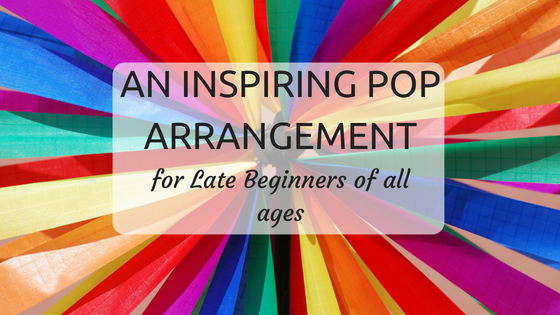
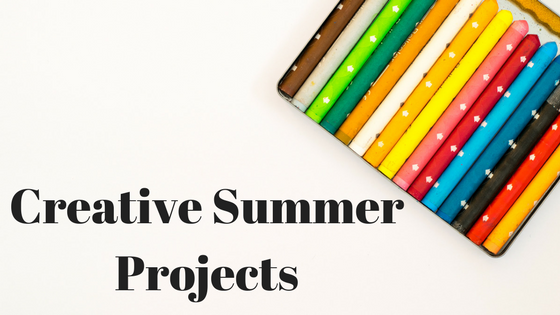
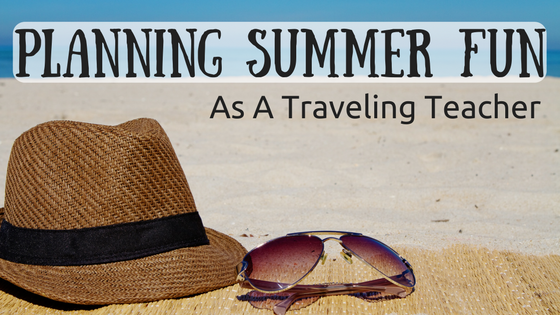
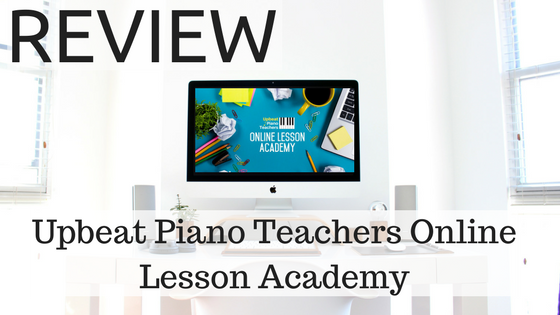


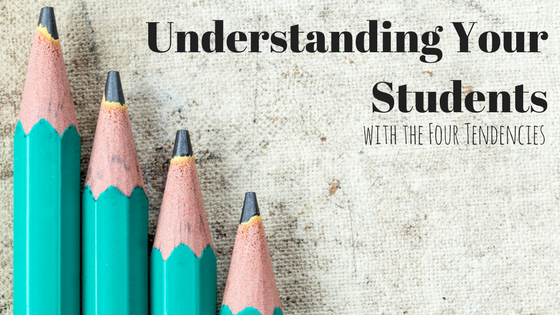
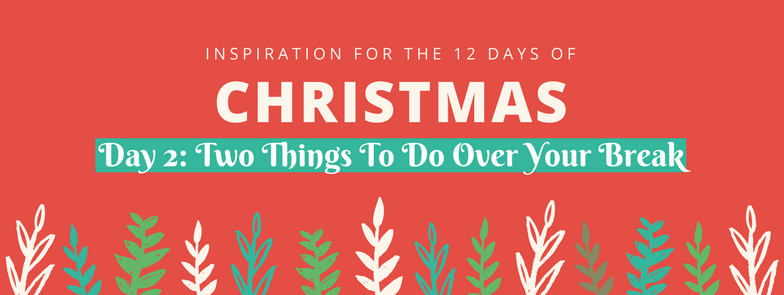
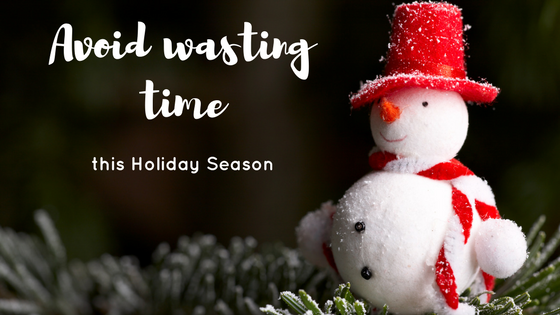

 RSS Feed
RSS Feed